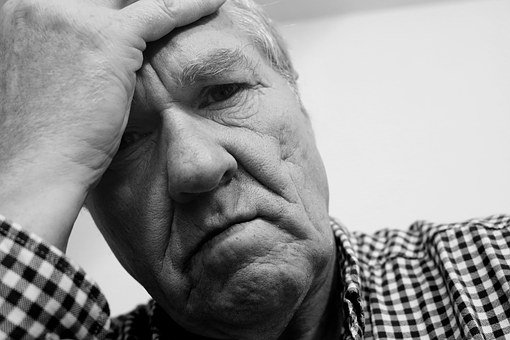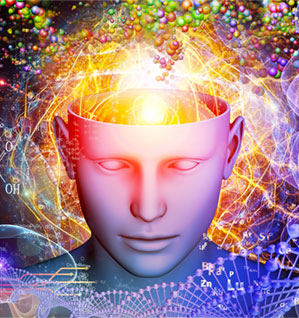
It quite unfortunate that so many people live their entire life in isolation, fear and regret, all because of a common situation known as anxiety.
What Is Anxiety?
Anxiety can be seen as a physiological, behavioral and psychological reaction to stressful situations. It can also be seen as a psychological disease. It may include feelings of apprehension, uneasiness, or fear over a real or imagined situation. This is accompanied by some Physical symptoms such as rapid heartbeat, muscle tension, queasiness, dry mouth or sweating.
No one would like to have an anxiety. But it’s not a choice. It has a cause. Although, the cause of anxiety is not the same for everyone, once an anxiety is developed, it is not something that can easily be cured. Some degree of anxiety is normal. For example, a little anxiety may prompt one to practice for an upcoming presentation. However, when anxiety is caused by a traumatic event, it can become overwhelming, and it can get in the way of normal life activity.
What Are The Causes Of Anxiety Disorder?
Anxiety disorders are forged over years of experiences. They have a genetic component, an upbringing component, and an environmental component. Every experience you’ve ever had can craft your anxiety disorder. Anxiety may even have no real cause at all.
To better understand the causes of anxiety disorder, we can conveniently group them into two major causes, namely;
1 Biological and
2 Environmental
Biological causes of anxiety disorder
Studies have shown that genetics and biology play a role in the creation of anxiety disorders. Not only does anxiety appear to run in some families; if you take two people with similar experiences, one may have an anxiety disorder, one may not, and what could probably differentiate between them may be genetic or at least influenced by the body more than the mind. Biological causes include:
Deregulation of Brain Chemistry:

Although, it is not entirely clear if the imbalance is due to poor coping strategies, or if the imbalance comes first and then lead to the experience of anxiety. Therapy without any medicinal intervention has been shown to improve chemical regulation of neurotransmitters, indicating that even though there may be a biological component, the mind can overcome them and improve the flow of these transmitters throughout the brain.
But in adverse situations, doctors prescribe medicines for these issues that are specifically designed to improve neurotransmitter regulation, and they can often work at least in small doses. This is an indication that neurotransmitters are something that can be altered both biologically and environmentally. These neurotransmitters also play a role in sleep, mood, and emotional stability, each of which can affect experiences that lead to anxiety disorders.
Genetics:
Studies have also shown that some people are more genetically prone to anxiety disorders than others. These disorders appear to be passed down from parents and immediate family to children, especially with regard to panic disorder. Although, it is not entirely clear what component of that is still related to child upbringing (studies have also shown that children that see anxiety in their parents are more likely to become anxious themselves), but even at that, there is still a genetic component at play. Those that have immediate family suffering from an anxiety disorder should be especially careful about reducing stress and anxiety in their lives, because they are more likely prone to anxiety.
Medical Factors
Research has also shown that there may be some medical conditions that might result to increased anxiety disorders. This occurs mostly when some disease or illness affects the brain, causing a disruption in the brain chemistry. In cases like these, treating the disease will generally prevent further anxiety. Medical factors can also be considered “environmental,” since you are not born with the issue. But despite that, it is still anxiety caused by your biology. However, diseases that are likely to cause anxiety are less common than most people believe, and anxiety can make you fear that you have these conditions even without medical evidence. For this reason, it is best to assume that a medical issue is not causing your anxiety unless you already know you have a medical condition.
Environmental Causes of Anxiety Disorders
Environment includes everything that is not genetic, every experience you have, every place you go, and everything you’ve been taught. Some environmental causes of anxiety disorder include;
Trauma
Traumas can simply be expressed as any form of severe, instant stress, brought about by an external factor which may include; close to death experiences, intense violence, sexual assault, witnessing death, and several related experiences.
This is especially common in those with post-traumatic stress disorder, but may also affect those with generalized anxiety disorder, panic disorder, social phobia, etc. A trauma can occur at any instant in life and can affect you right away, or possibly not until years later. This explains why some children that experienced trauma in their childhood get anxiety only in adulthood. Trauma is not the most common cause of anxiety, but only few out of the majority of those that experienced traumatic life events were able to handle it without developing an anxiety.
Stress
Traumatic life experiences can cause anxiety disorders. But simple life stress is practically one of the most common reasons that people develop anxiety. Long term stress may affect or weaken the part of the brain that controls coping or anxiety control. Stress may affect the balance of hormones and neurotransmitters; Stress may overwhelm the mind, making it harder to let go of anxiety, thereby resulting to a disorder. Most of those with panic attacks, though not all, will report that their first ever panic attack occurred during a period of stress, like a bad relationship, a bad job, overcoming a breakup, feeling overwhelmed in school, etc. post-traumatic stress disorder is almost literally an anxiety disorder brought on by the trauma of a stressful event. These are all common links between stress and anxiety.
Some helpful tips for coping with and overcoming fears and anxiety disorders
1. Admit you have symptoms:
The first step in solving a problem is by admitting that you have one. Most people suffer from anxiety disorders but tend to pretend in front of others that they are not affected by it, or that it’s not a problem to them. Be honest with yourself. If you notice any unusual symptoms about yourself, calm down, try to observe yourself carefully and make note of how you really feel. As you notice feelings of anxiety come up, try to figure out what is really bothering you. Don’t hide feelings of stress or anxiety behind family or work responsibilities. You must first admit that something is definitely wrong before you can begin to heal.
2. Confront your anxieties a little at a time:
You can overcome your fears and anxieties by facing them slowly and little by little, until you feel comfortable taking on more. Anxiety can be overcome with time and patience.
3. Help others:
Consider participating in volunteer works to help others, rather than just sending money to your local charity. The act of helping others comes with several emotional benefits and can empower you and help you feel less helpless and vulnerable.
4. Avoid trying to do too much:
Taking on too much work or over-committing yourself will increase stress and anxiety. Take things easy on yourself. Delegate as much as you can to others, and don’t commit to things you know you definitely don’t have time for.
5. Plan ahead for upcoming events:
Always try and anticipating and preparing yourself for upcoming events or situations you think may cause you anxiety before the actual date of the event. Try to carry out some rehearsals. Then meditate and visualize yourself in the situation feeling calm, confident, and in control.
6. Limit your worrying:
Give yourself little a day to think about your concerns and what you can do about them. Concentrate your thought on what is “really” happening and avoid bothering yourself on what “might” happen. During the rest of the day, avoid letting worrisome thoughts disturb your mind.
7. Repeat positive statements to yourself:
In a situation when you begin to feel anxious, think of a positive statements that you can say to yourself to help you feel less anxious, repeat those statements over and over to yourself to help calm you down. I’ve tried that several times and it worked.
8. Get regular exercise:
Almost all exercise relieves anxiety. It can’t be over emphasized, try as much as possible to exercise daily, ranging from just taking a walk, jogging, swimming and so on. Take at least twenty to thirty minutes of deep relaxation exercises daily. Exercises like slow, deep breathing, muscle relaxation, and meditation can also help reduce anxiety.
9. Participate in social activities:
Try getting out of the house once in a while and engage yourself in social activities, such as going out to dinner, dancing with your peers, or the movies. These kind of activities can help reduce stress and anxiety.
10. Avoid alcohol and nicotine and also limit caffeine intake:
Although, alcohol and nicotine might seem to relax you, but in the long run they actually worsen anxiety and depression. Also, too much caffeine intake may result to insomnia and even anxiety. Instead drink water, decaffeinated coffee, herbal teas, caffeine-free colas or non-alcoholic beverages. Also avoid chocolate.
Thanks for taking your time to go through this article. Please feel free to share your own opinion about anxiety in the comment section.

Hi! I am a robot. I just upvoted you! I found similar content that readers might be interested in:
http://www.calmclinic.com/anxiety-guide/causes
Downvoting a post can decrease pending rewards and make it less visible. Common reasons:
Submit
excelente gracias por compartirlo
Downvoting a post can decrease pending rewards and make it less visible. Common reasons:
Submit
My brother suffers from a TBI and is trying to turn his life around. He depends on me to be help him with the "structure" in his life. He is finally realizing he needs purpose. This article helped me with some perspectives on his condition so thank you!!
Kaasiyanii
Downvoting a post can decrease pending rewards and make it less visible. Common reasons:
Submit
You're welcome, and thanks for taking your time to stop by. Am glad to know that it was helpful.
Downvoting a post can decrease pending rewards and make it less visible. Common reasons:
Submit
Congratulations @kelvino! You have completed some achievement on Steemit and have been rewarded with new badge(s) :
Click on any badge to view your own Board of Honor on SteemitBoard.
For more information about SteemitBoard, click here
If you no longer want to receive notifications, reply to this comment with the word
STOPDownvoting a post can decrease pending rewards and make it less visible. Common reasons:
Submit